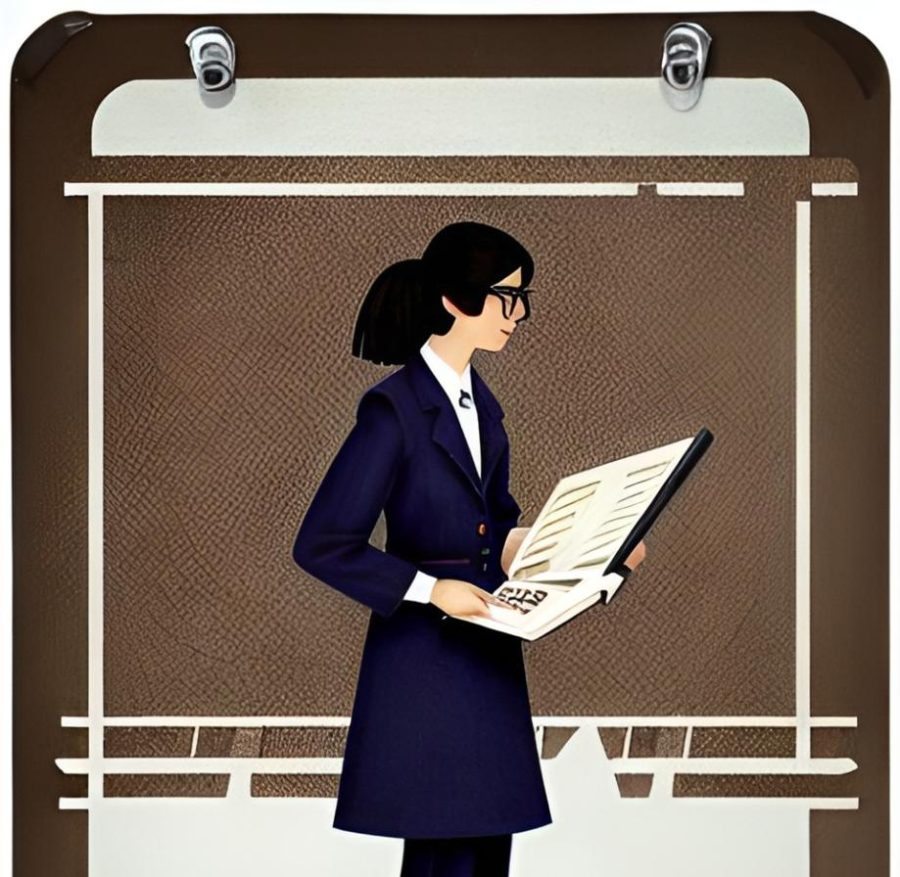The harsh reality of being a female football manager
While supporting the players, excited to do my part for the team, I can’t help but notice the unmistakably judgemental looks from the crowd. Being a female football manager is a recipe for the wrong kind of attention.
June 15, 2023
As the Friday night lights beam onto the football field, the routine to aid the football players begins: filling water bottles, carrying equipment and creating graphics for social media. Hype music blares through the speakers, the coach barks warm-up routines at the players — the atmosphere is intoxicating. But while supporting the players, excited to do my part for the team, I can’t help but notice the unmistakably judgemental looks from the crowd. Being a female football manager is a recipe for the wrong kind of attention.
This past season, the Whitman varsity football team implemented managers to assist the team with practices and games. Following the announcement, I gave my email to the coach and officially began my new endeavor as one of the six football managers — all of which were girls. I initially joined the team because I was desperate for SSL hours. But after the first few games, I began to love it.
When I first volunteered for the position, I thought my duties would be minimal; I figured I would sit on the field during games and travel with the team wherever they played. Instead, I spent countless hours on the field devoting myself to a team that I never previously cared for.
As a football manager, my duties included carrying equipment, filling water bottles, washing jerseys and helping to make graphics to post on the team’s social media. I was expected to attend every practice and every game, no matter the time or day.
We faced minimal issues at the very beginning of the season; occasional comments were made towards us by the players, like giving the phrase “the managers are for the team” a different and inappropriate connotation. Luckily, these comments were stopped quickly by the coach, and he told the players that disrespect to the managers was worthy of suspension from the team.
Starting in the summer, I attended grueling four-hour daily practices, which occupied my afternoons until November. When there wasn’t practice, there was likely a different commitment — Fridays were reserved for official games, and Saturday mornings were for lengthy debriefs and laundry.
The energy coursing through the team and crowd at the homecoming game became increasingly addictive as the stands filled with matching shirts, painted faces and school spirit. Being on the field, so close to the plays, was an experience like no other.
I learned to enjoy being a football manager; I built a great relationship with the team, the coaches and the five other girls who managed alongside me. After the first game, however, I realized that many of my peers didn’t believe in the work I did. The other managers and I faced constant interrogations from our peers about what we did for the team. After the initial home game, I couldn’t seem to escape the never-ending questions about the football jersey I wore, what I was doing on the field and the significance of my contributions to the team.
During one game, the other managers and I experienced relentless heckling from the other team, including the parents. I was frustrated by the comments and the endless accusations that I did the job for male validation. All of these misconceptions couldn’t be farther from the truth. Getting to be a part of the team and be and provide support on the field alongside my friends were my true motivations.
The misogyny and comments are ongoing, and I’ve come to terms with the idea that there will always be some people who are planted in their mindset and won’t believe me, no matter my efforts. I didn’t become a manager to fill anyone’s expectations other than my own, and I’ve accepted that I can’t please everyone. And despite the misogyny and misconceptions, I’m excited to be a manager again next season. The hours of sweat and judgment may be harsh, but the experiences and bonds I’ve formed make it all worth it.










